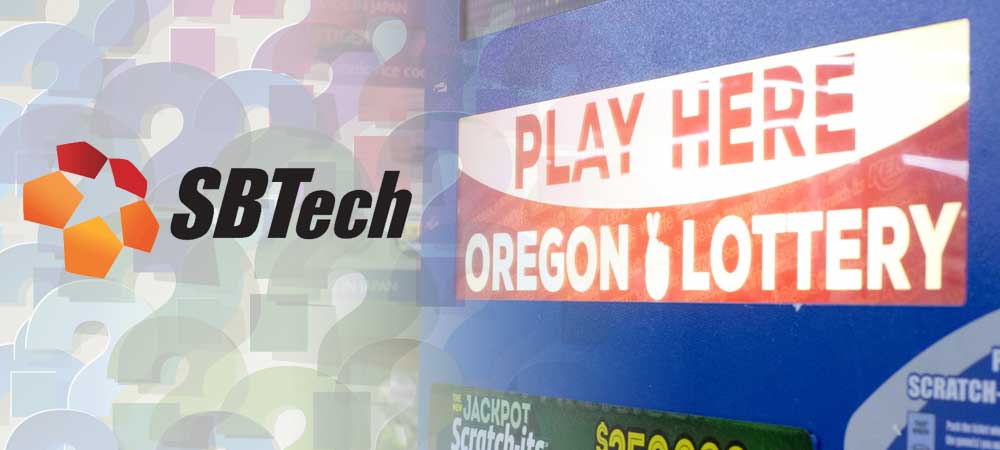- An Oregon circuit judge has ruled that SBTech must release details of their contract with the Oregon Lottery.
- SBTech is responsible for the development of Oregon’s Scoreboard sports betting app.
- This decision stems from a lack of transparency regarding this contract’s revenue splitting agreement.
SALEM, Ore. – Judge David Leith, circuit judge of Oregon’s third district, has ruled that SBTech must release its sports betting contract with the Oregon Lottery over to the public.
SBTech is the company responsible for developing Oregon’s Scoreboard app, a statewide mobile sports betting platform. Scoreboard is officially owned and operated by the Oregon Lottery, with revenues going directly toward funding state programs like education and infrastructure improvements.
The case stems back to a 2019 incident in which Oregon media outlets, The Oregonian and Oregon Live, requested contract details of SBTech’s agreement with the state government.
The materials SBTech provided were incomplete and redacted to exclude important details, mainly those regarding how revenues would be split between SBTech and the Oregon Lottery. As a result, these media outlets made an appeal to the Department of Justice to compel a full release of SBTech documents.
After Attorney General Ellen Rosenblum ordered the documents released, SBTech sued the Oregon Lottery, claiming that releasing the documents would be a violation of contract confidentiality.
Judge Leith’s decision upholds Rosenblum’s order, and SBTech now has 30 days to either comply with the order or appeal the ruling and get a stay of proceedings.
Scrutinizing Revenue Sharing Agreements
The original issue with SBTech’s refusal to disclose contract details was the lack of transparency of how revenue would be shared between SBTech and the Oregon Lottery.
Scoreboard’s intended function was to help fund state government programs. When the contract was initially awarded, it raised some eyebrows owing to the fact that Lottery officials didn’t wait for a background check on SBTech to clear.
In addition to those initial concerns, Scoreboard is on track to vastly underperform expectations in its first fiscal year of operation. By June 30, 2020, Scoreboard is projected to account for $5.3 million in losses.
SBTech’s focus on keeping revenue sharing agreements private means one of two things: most Oregonians would consider that their share of revenues is either too high or too low.
If SBTech received an inordinate share of revenues from a government project that was losing money overall, it would be a public relations crisis.
Alternatively, if their share was unusually low, it would imply that SBTech was only awarded the Scoreboard contract because they offered the Oregon Lottery the highest revenue share of the three bidding companies.
One of the competitors, Scientific Games, protested the contract in March 2019, claiming that their company had more operational experience in the United States and that SBTech’s proposal was not significantly different enough to warrant such a quick decision from the Oregon Lottery.
In any case, public disclosure of contract details could negatively impact the reputation of SBTech, the Oregon Lottery, and the Scoreboard app.
The launch of Oregon sports betting has been rocky so far, and if SBTech can’t get a stay to prevent the release of documents, potential backlash could compound the issue further.
Advertising Disclosure
In order to provide you with the best independent sports betting news and content LegalSportsBetting.com may receive a commission from partners when you make a purchase through a link on our site.
News tags: Ellen Rosenblum | Oregon | Oregon Lottery | SBTech | Scientific Games | Scoreboard | The Oregonian

With a dual background in English and sports performance and business analytics, Carter aims to write stories that both engage and inform the reader. He prides himself on his ability to interweave empirical data and traditional narrative storytelling. When he isn’t keeping readers up to date on the latest sports betting legal news, he’s banging his head against a wall regretting his decision to be a Tampa Bay Buccaneers fan.


 Bitcoin Sports Betting Sites
Bitcoin Sports Betting Sites Best Online Sports Betting
Best Online Sports Betting Famous Sports Bettors
Famous Sports Bettors States With Legal Sports Betting
States With Legal Sports Betting Sports Betting Events
Sports Betting Events




